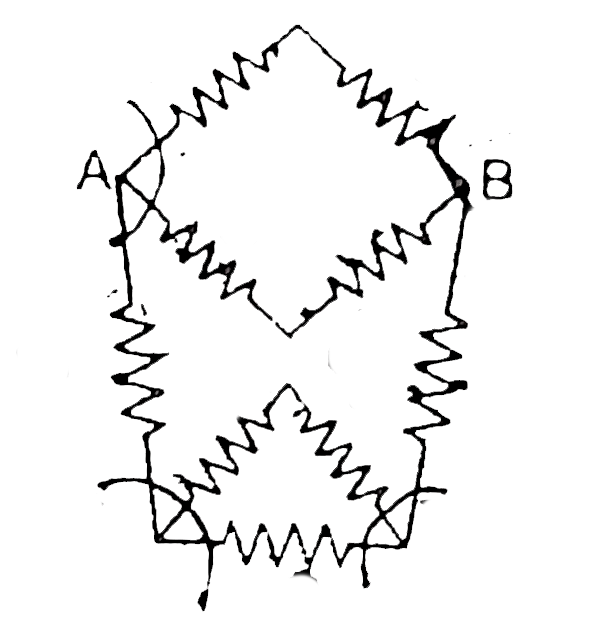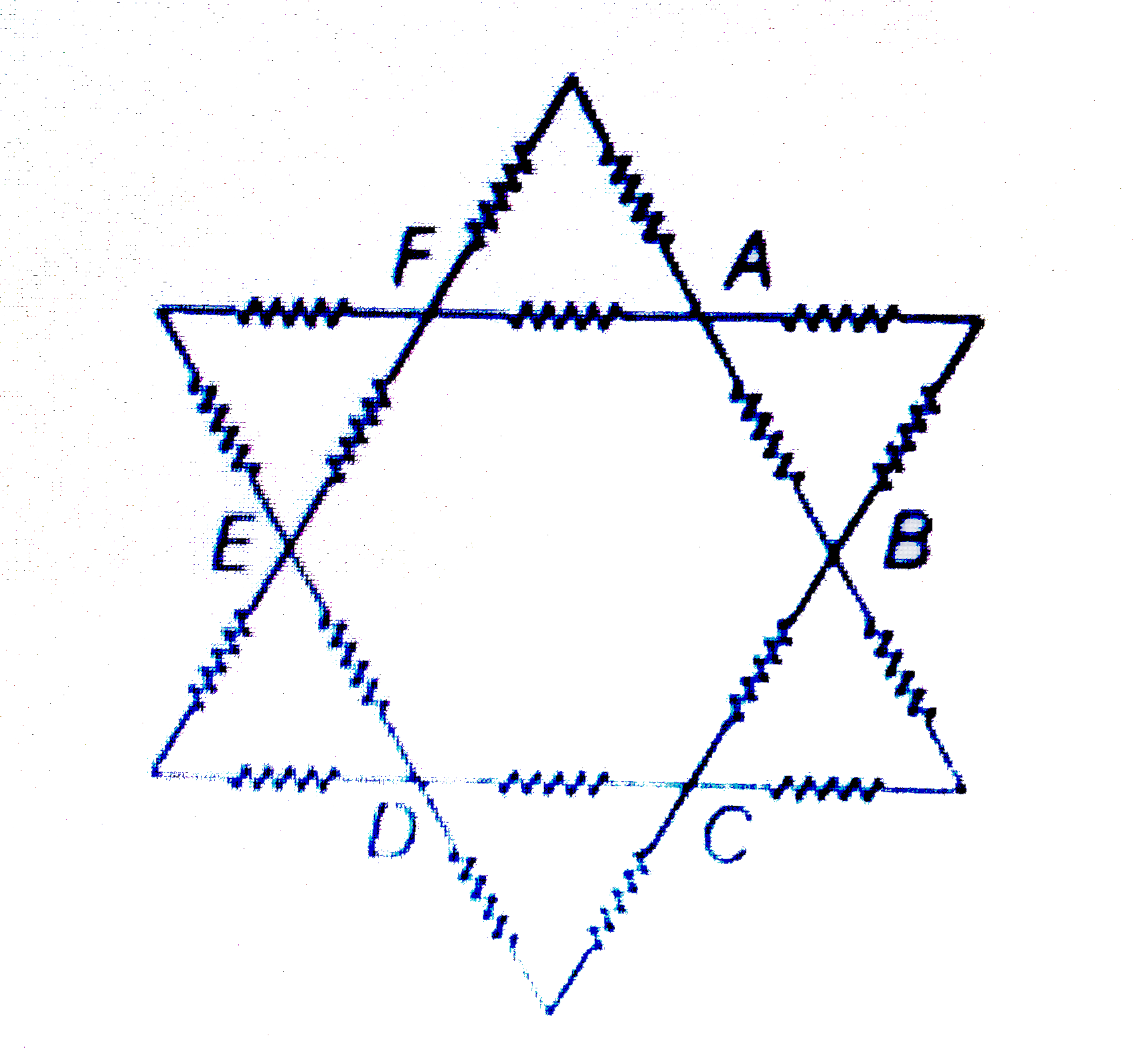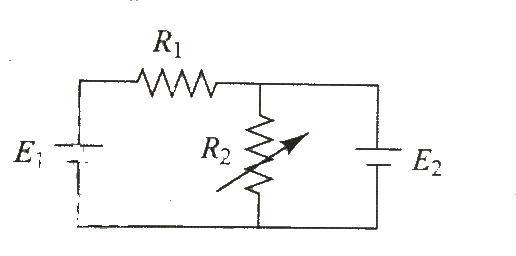Resistance of a resistor is independent on
length
area of cross section
temperature
frequency
The correct Answer is:D
Step by step video, text & image solution for Resistance of a resistor is independent on by Physics experts to help you in doubts & scoring excellent marks in Class 12 exams.
Updated on:21/07/2023Topper's Solved these Questions
Similar Questions

If resistance of each resistor is R then the effective resistance between A&B of the shown network is:
View SolutionA resistor is connected to a battery of emf 10 V and internal resistance 0.3Ω. What is the resistance of the resistor to be inserted in the circuit for the circuit current 1.2A?
View Solution
Knowledge Check
The electrical resistance of a conductor is independent of its:
ATemperatureBPressureCLengthsDCross-sectional areaResistance of each resistor is R. Then the equivalent resistance across A and B is
 A59RB49RCR9D79R
A59RB49RCR9D79RThe effective resistance of two resistors in parallel is 127Ω. If one of the resistors is disconnected the resistance becomes 4Ω. The resistance of the other resistor is
A4ΩB3ΩC127ΩD712Ω
Find an expression for equivalent resistance of three resistors joined in parallel.
View SolutionFind an expression for the equivalent resistance of three resistors joined in series.
View SolutionA combination consists of three resistors in series. Four similar sets are connected in parallel. If the resistance of each resistor is 2Ω, find the resistance of this combination.
View SolutionStatement I : In the circuit in Fig.7.46, both cells are ideal and of fixed emf, the resistor R1 has fixed resistance and the resistance of resistor R2 can be varied ( but R2 is always non zero). Then the electric power delivered to the resistor of resistance R1 is independent of the value of resistance R2.
Statement II: If potential difference across a fixed resistance is unchanged , the poweer delivered to the resistor remains constant.

View SolutionThe equivalent resistance of resistors connected in series is always
View Solution

